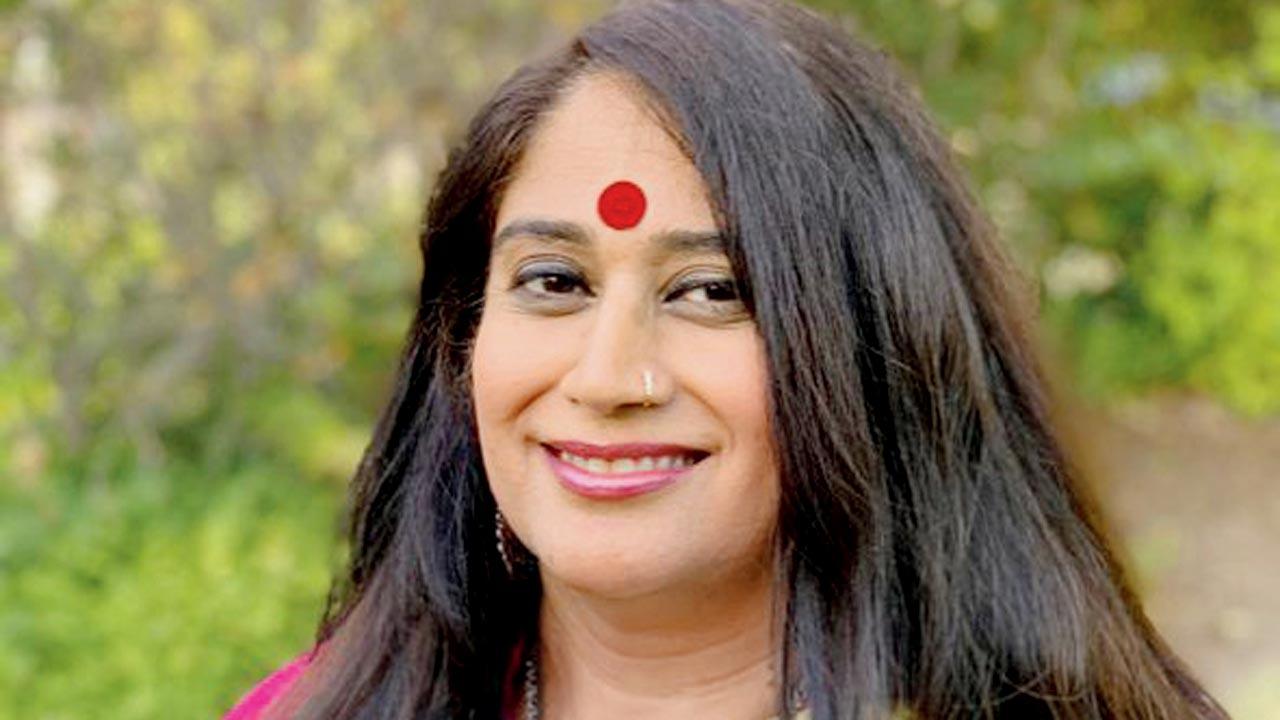A new collection of poems takes creative licenses while adhering to biographical facts to enable India’s first female physician Anandibai Joshi to tell her own story

Anandi Gopal Joshi, Japanese doctor Kei Okami and Syrian doctor Sabat Islambooly, each in native dress, Philadelphia, Pennsylvania, 1886. All three graduated from the Woman’s Medical College of Pennsylvania and were the first women from their respective countries to graduate from a western university. In her book, Malaviya writes that despite echoing exoticism, the photograph exudes a power “that seemed to turn the notion of empire on its head” and hints at “an allyship and sisterhood that went beyond the church and state”. Pic/Getty Images
One might find this silly, but each time I started a poem in this collection, I would look up at the sky and take Anandibai’s permission, asking her ‘what would you like me to say?’” poet and writer Shikha Malaviya tells us in an email interview about her new collection of persona poems Anandibai Joshee: A Life in Poems (HarperCollins India, R399). The book, on India’s first female physician and the first Indian woman to travel to the United States in 1883 to study medicine, tells Anandibai’s story through her own imagined voice, setting it apart from previous work on her life, which has often viewed her through the limiting narrative of her husband as her saviour and guide. As Malaviya writes in her preface to the book, “[by] telling Anandibai’s story through poems in her own voice, my hope is to not only restore Anandibai’s agency and give her story back to her, but to also highlight her inner strength, determination, sharp intellect, and desire to help other women”.
ADVERTISEMENT
Malaviya also writes in her preface about the racism she experienced as a child growing up in Minnesota in the early ’80s and her need to find her history reflected in her surroundings. It was this search for a foremother that ultimately led her to Anandibai. “The writing of this book has made me realise that we can heal our own lack of history and roots by excavating life stories and bringing them to the forefront,” she tells us.
 Shikha Malaviya
Shikha Malaviya
At the same time, as an Indo-American with experiences of living both in India and the US, it was also a sense of shared history and struggle that helped forge Malaviya’s personal connection with her subject. “It was shocking to me that I could feel this connection [with her] despite us belonging to different centuries. My heart ached with recognition in seeing Anandibai’s tussle between traditional expectations and her own beliefs, which were, in many ways, radical,” notes the poet. She finds echoes of her own experiences in Anandibai’s and mentions how her Indian identity too was reinforced, while she was constantly cautioned about becoming “westernised”. She describes how she embraced tradition in her own life but never, like her ancestor, let go of her dream. “Writing poetry is and always will be my radical act,” Malaviya insists.
Through poems, titled A Different Kind of Arithmetic, where Anandibai even as a child is made acutely aware of the divide that exists between the sexes (‘Before I could count properly on my fingers/Ek don teen char, I learned division/the haveli halved into two sections/the mardana and zenana’) and ‘Loss: An Invocation’ where she resolves to become a doctor (‘…and through your loss I find purpose/my son with no name birthing a dream/and I volunteer myself to my countrywomen/as I take the oath of Hippocrates…’), Malaviya explores Anandibai’s inner thoughts and feelings as it takes readers through the more well-known episodes of her life.
Malaviya’s formal structuring of her verse too lends as much meaning as do her usage of words. “[When] you are telling a life story, different forms of poetry can lend more weight to all the twists and turns,” she admits. “Anandibai lived in an age where language was quite formal, measured, and elegant. Forms such as sonnets, pantoums, ghazals and couplets lend to that while providing, in this case, a certain elegiac rhythm. I’m a very visual writer and in poems such as ‘Nāmkaran,’ where Anandibai is named after the Yamuna river, it felt natural for the words to take on the shape of a river,” she explains. Again, a poem called Consumption which underscores the brutality Anandibai faced at the hands of her husband “is shaped like a sickle”. “I wanted the violence of the poem to be conveyed not just through words, but also to foreshadow how consumption, which is another word for tuberculosis, would eventually cut her down,” says Malaviya. “Through the writing of this book, I came to respect the function of form much more and realised that within form itself, there is much room to experiment.”
 Subscribe today by clicking the link and stay updated with the latest news!" Click here!
Subscribe today by clicking the link and stay updated with the latest news!" Click here!












